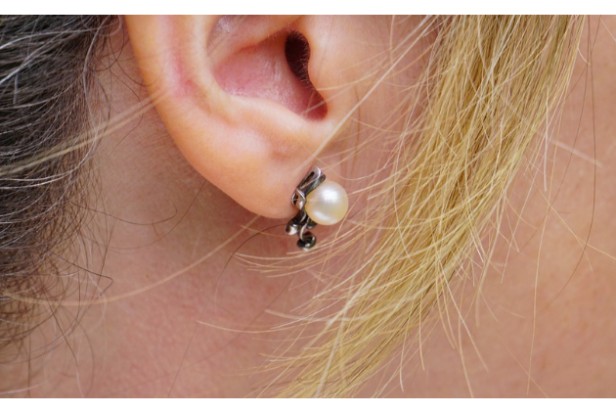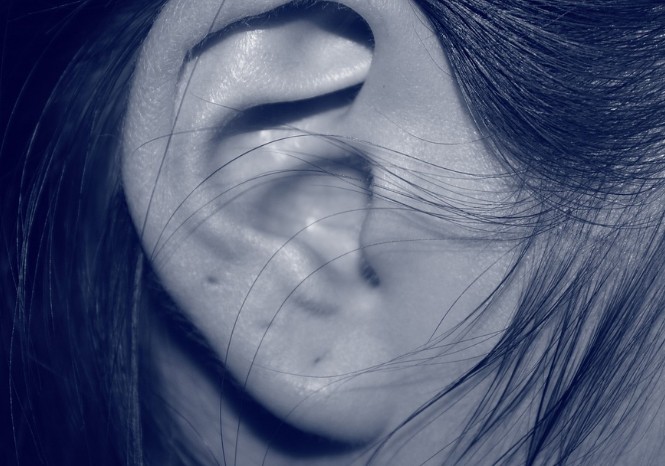
How to Stop Your Ears From Crackling – Hearing Issues
Tinnitus is a condition that causes an obtrusive ringing, buzzing, or hissing sound in your ears. But what if you hear a popping or crackling noise instead, more akin to the sound made when milk is poured over rice cereal?
The causes of ear crackling are numerous, ranging from mild and typical to symptoms of more serious illnesses. Let’s examine their differences and when you should seek medical attention.
What is Crackling in the Ear?
Crackling in the ear is a form of tinnitus, defined as the perception of sound without a “real” origin. Though it does have a physical source inside your ear, you are not just hearing things there. If you are the only one who can hear it, your tinnitus may be subjective; if it is objective, your treating physician can locate the source during an examination.
Causes of Crackling in the Ear
There are several main causes of crackling in the ear:
- dysfunction of the eustachian tube
- Acute otitis media.
- Middle ear myoclonus.
- Earwax buildup.
- dysfunction of the temporomandibular joint (TMJ).
- Meniere’s disease.
Eustachian Tube Dysfunction
In addition to providing ventilation and pressure regulation, your Eustachian tubes are necessary for middle ear mucus drainage. The symptoms of dysfunction frequently include popping or crackling sounds, along with ear pain or a feeling of fullness.
Although it is not directly related to infection, Eustachian tube dysfunction can develop after an ear infection, upper respiratory tract infection, or a flare-up of seasonal allergies. Changes in air pressure from activities like scuba diving or air travel are examples of non-inflammatory causes of Eustachian tube dysfunction.
Acute Otitis Media
A middle ear infection known as acute otitis media, which can impair hearing, is referred to medically. The infection may move from the outer ear to the middle ear or up the Eustachian tubes from an upper respiratory tract infection. These might be viral or bacterial.
Due to the immaturity of their Eustachian tubes, children are more likely than adults to develop middle ear infections. Compared to adults, they are positioned with a more horizontal slope, where gravity helps with fluid and mucus drainage.
Middle Ear Myoclonus
A rare form of tinnitus known as middle ear myoclonus (MEM) is brought on by abnormal movement of the middle ear muscles. This may result in a popping or crackling sound, or something completely different like a whoosh, buzz, or tapping noise. If the sound has a rhythmic or beat-like quality, it may be referred to as musical ear syndrome.
MEM may result from injuries to the ear, abnormal muscle contractions in other areas, like the throat, and neurological problems. In one case study, a girl who had stopped chewing gum as her plane touched down reported hearing strange noises.
Earwax Buildup
Before you search for “hearing aids near me,” you may just have a physical blockage from a buildup of earwax.
The most common reason for crackling sounds, earwax buildup in the outer ear can, if it gets bad enough, distort how you hear. It develops into a problem when too much earwax builds up in your ear canal to the point where your eardrum is no longer discernible. This condition is also referred to as cerumen impaction.
Temporomandibular Joint (TMJ) Dysfunction
Disorders of the temporomandibular joint (TMJ) are a group of problems with the muscles that move your face and the joint that connects your jaw to your skull’s temple bone. Here, pressure changes in your ear tubes or muscles, as well as jaw bone movement, may be the cause of a popping or crackling sound.
Meniere’s Disease
Tinnitus, vertigo, and sensorineural hearing loss in the affected ear are symptoms of Meniere’s disease. It is linked to migraine and autoimmunity, with a small percentage of cases being genetic. The condition affects how well you hear and how well you can balance because of fluid buildup in the cochlea and vestibular organ of the inner ear.

How to Equalize the Pressure in Your Ears
It seems that your ears are quite adept at controlling air pressure. The pressure inside your ears is able to control, adjust, and equalize to the pressure outside thanks to a useful little anatomical feature known as the Eustachian tubes.
Usually, though there are times when your Eustachian tubes may struggle to adjust and problems with air pressure imbalances may arise. If you’re ill, for example, or there is a lot of fluid buildup behind your ears you might start suffering from something called barotrauma–an uncomfortable and sometimes painful sensation of the ears caused by pressure differential. It’s similar to this when you drive or fly over particularly tall mountains, but only in small amounts.
Usually, pressure changes are imperceptible to you. However, you may experience fullness, pain, and even crackling in your ears if those changes occur suddenly or if your Eustachian tubes aren’t functioning properly.
You might understandably wonder where that comes from since experiencing crackling in your ears is somewhat unusual in a day-to-day situation. The sound itself is often compared to a “Rice Krispies” style noise. Your eustachian tubes’ obstructions or impediments are usually what you hear as air moving around them. Congestion, a malfunctioning Eustachian tube, or uncontrolled changes in air pressure are all potential causes of those obstructions.
In most cases, crackling is brought on by an imbalance in ear pressure (especially if you’re flying, like George is). And if that happens, there are several ways to bring your inner ear and outer ear back into air-pressure-harmony:
- Swallow: Your eustachian tubes will have to open in order to equalize the pressure due to the swallowing muscles that contract. The fact that chewing gum causes you to swallow, which forces your ears to equalize, is another reason why it’s advised to do so while flying.
- Yawn: Try yawning for the same reason swallowing does. (If you’re having trouble falling asleep, try picturing someone else yawning; chances are you’ll yawn yourself.)
- Toynbee Maneuver: Actually, this is just a fancy way to swallow. Close your mouth, pinch your nose, and swallow. A mouthful of water may occasionally make this slightly easier because it forces you to keep your mouth shut.
- Valsalva Maneuver: Try pinching your nose shut and closing your mouth if you’re still having trouble. Instead of swallowing, try exhaling instead, being careful not to let any air escape. In theory, the air you try to expel should pass through your eustachian tubes and balance the pressure.
- Frenzel Maneuver: Okay, last maneuver. If blowing out doesn’t work, try pinching your nose, closing your mouth, and making “k” sounds with your tongue. Clicking might also be tried to see if it works.
How to Stop Crackling in Ears
When you need relief from ringing in your ears, proper diagnosis and treatment are crucial.
Diagnosis
Finding the right cause of crackling sounds requires a proper diagnosis. On examination with an otoscope, which enables your doctor to see inside the ear canal, cases of ear wax buildup or middle ear infections can be seen.
A more thorough examination of your mouth, jaw joint, and its functions is necessary for TMJ disorders. Your ability to bite or open your mouth fully, as well as whether you have an overbite, may be measured.
Even radiological testing, like an MRI, may be necessary for other muscle disorders, like MEM, or Meniere’s disease, to check for any physical abnormalities.
When to See a Doctor
If you experience any sudden degenerative changes to your hearing, such as a crackling sound, it is crucial to consult a doctor as soon as possible. For instance, a sudden sensorineural hearing loss can be identified by a normal speaking voice that becomes a whisper over night.
It is best to see a doctor for an infection only if symptoms worsen or don’t get better in three days.
Seek medical care as soon as you can because MEM can be caused by an injury, neurological problems, or muscle disorders. It is crucial to treat Meniere’s disease with steroids or other medications in order to avoid later surgery.
Along with jaw pain, chewing problems, and occasionally a tight or locked jaw, TMJ dysfunction can also cause other symptoms. Putting off treatment may lower your quality of life, so visiting a doctor is crucial.
Treatments
Professionals in medicine no longer believe that ear infections need to be treated right away. Now, it is suggested to wait patiently, with treatment being suggested if there is no improvement after 72 hours. Treatment for respiratory and sinus infections is also necessary if they are present.
Treatment for MEM is based on the underlying causes or factors that maintain it. Biofeedback is effective for some people, while Botox injections, which are also used to treat other spastic muscle disorders, may be helpful for others.
Steroid injections may reduce the inflammation that causes symptom attacks in people with Meniere’s disease. You may benefit from hearing aids if you have sensorineural hearing loss. More severe treatment options include partially damaging the nerves or removing the labyrinth (which causes deafness).
FAQs
What Causes Crackling in My Ear Like Rice Krispies
Without a doubt, it isn’t Rice Krispies. When the pressure inside of your ears changes, whether from altitude, going underwater, or just yawning, you might hear popping or crackling noises. These noises are brought on by your ear’s tiny eustachian tube.
Why My Ear Keeps Popping and Clogging
Your eustachian tubes may not be able to open or close properly when you have allergies, a cold, sinus infections, or polyps or tumors in your nose. This causes ear popping or crackling sounds. infected middle ear. Typically, middle ear infections affect children more frequently than they do adults.
Why Crackling in Ear When Swallowing
It’s common for people to experience ear crackling when they swallow. This is from the movement and opening of the Eustachian tube (ET). The ET is a complicated tube that opens upon swallowing to allow air from the back of the throat to enter the middle ear. This is quite normal.





Average Rating